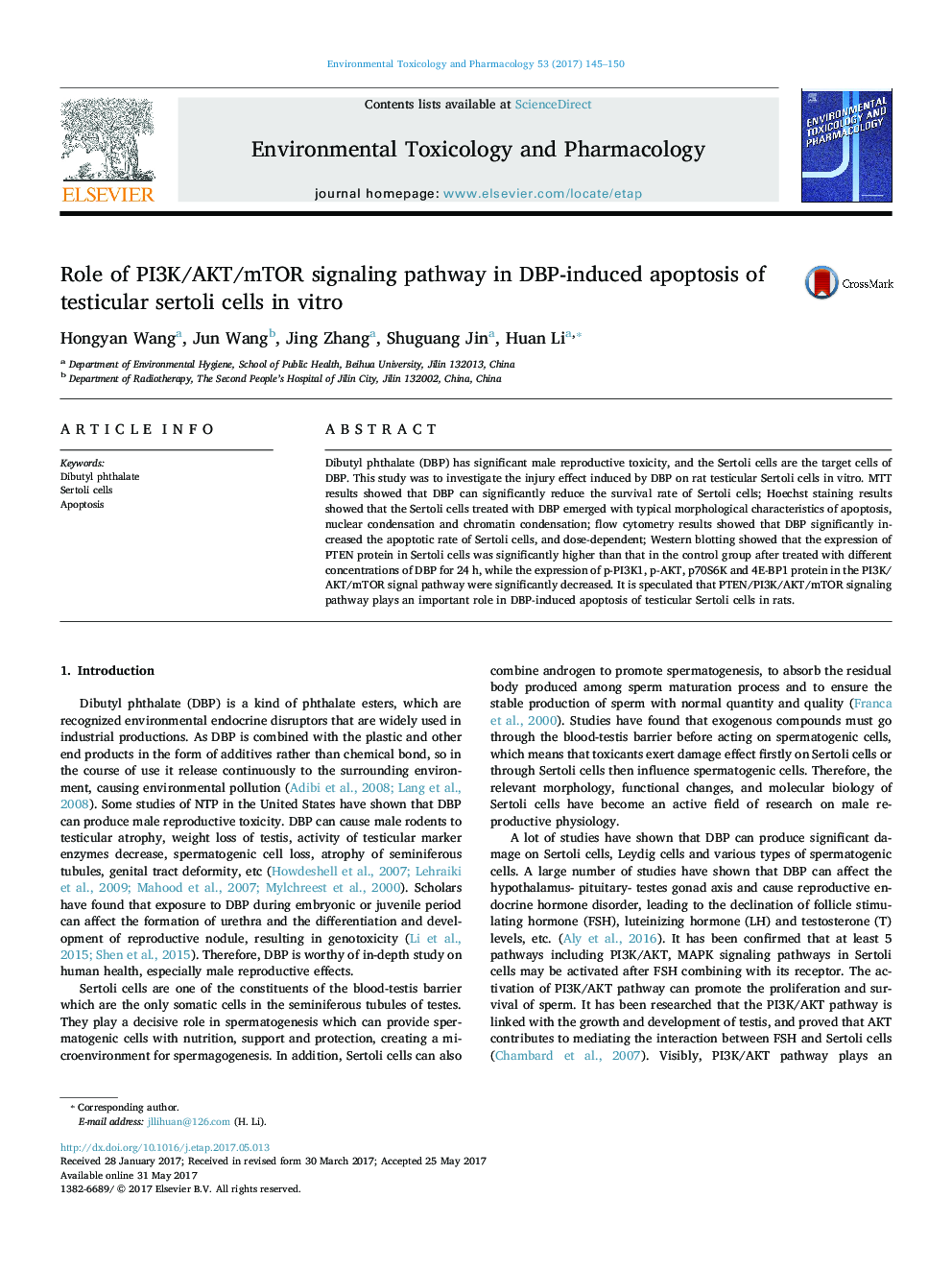| Article ID | Journal | Published Year | Pages | File Type |
|---|---|---|---|---|
| 5559841 | Environmental Toxicology and Pharmacology | 2017 | 6 Pages |
â¢DBP can induce apoptosis of the sertoli cells in a dose-dependent manner in vitro.â¢DBP increased the expression of PTEN and decreased P-PI3 K,P-AKT and p-mTOR level.â¢Pten/Akt signaling pathway play an important role in DBP-induced apoptosis.
Dibutyl phthalate (DBP) has significant male reproductive toxicity, and the Sertoli cells are the target cells of DBP. This study was to investigate the injury effect induced by DBP on rat testicular Sertoli cells in vitro. MTT results showed that DBP can significantly reduce the survival rate of Sertoli cells; Hoechst staining results showed that the Sertoli cells treated with DBP emerged with typical morphological characteristics of apoptosis, nuclear condensation and chromatin condensation; flow cytometry results showed that DBP significantly increased the apoptotic rate of Sertoli cells, and dose-dependent; Western blotting showed that the expression of PTEN protein in Sertoli cells was significantly higher than that in the control group after treated with different concentrations of DBP for 24Â h, while the expression of p-PI3K1, p-AKT, p70S6K and 4E-BP1 protein in the PI3K/AKT/mTOR signal pathway were significantly decreased. It is speculated that PTEN/PI3K/AKT/mTOR signaling pathway plays an important role in DBP-induced apoptosis of testicular Sertoli cells in rats.
